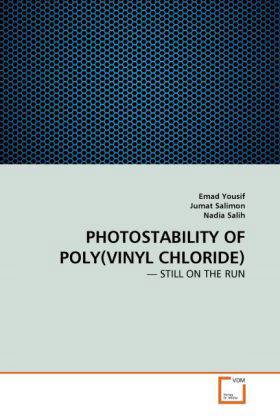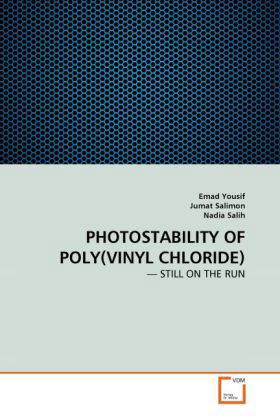
- Afhalen na 1 uur in een winkel met voorraad
- Gratis thuislevering in België vanaf € 30
- Ruim aanbod met 7 miljoen producten
- Afhalen na 1 uur in een winkel met voorraad
- Gratis thuislevering in België vanaf € 30
- Ruim aanbod met 7 miljoen producten
Zoeken
PHOTOSTABILITY OF POLY(VINYL CHLORIDE)
STILL ON THE RUN
Emad Yousif, Jumat Salimon, Nadia Salih
Paperback | Engels
€ 70,45
+ 140 punten
Omschrijving
Poly(vinyl chloride) is second only to polyethylene among five kinds of general plastic materials, which was widely used in the industries including architecture, electronic, chemical engineering, packaging, transportation, etc.However, low photostability of PVC leads to hydrogen chloride loss,discoloration, and finally serious corrosion phenomena,accompanied by changes of physical and chemical properties of PVC. The low cost and the good performance of poly(vinyl chloride) products have increased the utilizationof this polymer in building, mainly in exterior application, such as window profiles, cladding structure, and siding. However, ultimate user acceptance of the PVC products for outdoor building applications will depend on their ability to resist photodegradation over long periods of sunlight exposure. To ensure weatherability, the PVC resin needs to be compounded and processed properly using suitable additives, leading to a complex material whose behavior and properties are quite different from the PVC resin by itself.
Specificaties
Betrokkenen
- Auteur(s):
- Uitgeverij:
Inhoud
- Aantal bladzijden:
- 72
- Taal:
- Engels
Eigenschappen
- Productcode (EAN):
- 9783639365108
- Verschijningsdatum:
- 23/06/2011
- Uitvoering:
- Paperback
- Afmetingen:
- 152 mm x 229 mm
- Gewicht:
- 118 g

Alleen bij Standaard Boekhandel
+ 140 punten op je klantenkaart van Standaard Boekhandel
Beoordelingen
We publiceren alleen reviews die voldoen aan de voorwaarden voor reviews. Bekijk onze voorwaarden voor reviews.







